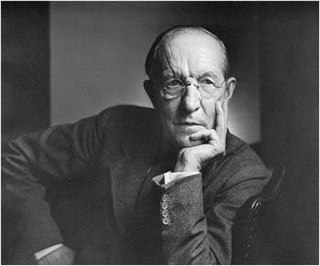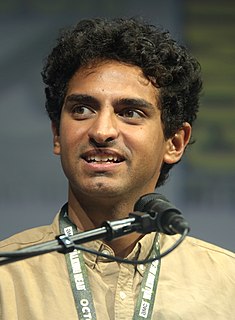A Quote by Robert A. Williams, Jr.
What this ideology, what this myth about savagery did was really excuse America for the disappearance of the Indian. It wasn't our fault. They were just an inferior race. And so John Marshall adopts that. And the tragedy and the present-day circumstances of that decision are that those racial attitudes are so deeply embedded in these foundational principles of American Indian law.
Related Quotes
I have compromised down the line. I've disliked it intensely in the old days when you were trying to talk race relations and they would not allow you to talk about the legitimacies of race relations. In the old days, you didn't talk about black, you talked about Eskimo or American Indian, and the American Indian was assumed not to be a problem area.
I had an Indian face, but I never saw it as Indian, in part because in America the Indian was dead. The Indian had been killed in cowboy movies, or was playing bingo in Oklahoma. Also, in my middle-class Mexican family indio was a bad word, one my parents shy away from to this day. That's one of the reasons, of course, why I always insist, in my bratty way, on saying, Soy indio! - "I am an Indian!"
To many, Indian thought, Indian manners; Indian customs, Indian philosophy, Indian literature are repulsive at the first sight; but let them persevere, let them read, let them become familiar with the great principles underlying these ideas, and it is ninety-nine to one that the charm will come over them, and fascination will be the result. Slow and silent, as the gentle dew that falls in the morning, unseen and unheard yet producing a most tremendous result, has been the work of the calm, patient, all-suffering spiritual race upon the world of thought.
Western civilization has been at war with tribalism for 3,000 years. And that war was brought to the New World by the English colonists. A very early point in American law Chief Justice John Marshall is asked to decide the status of Indian tribes. And what he does. He calls them savages who lack the same rights as the white people who came over here, the Europeans, and colonized their land under this, what many Americans might regard as an obscure legal doctrine called the Doctrine of Discovery. But it is still the most important doctrine in American constitutional law.
I don't think a lot of people in America understand what Indians are. And that's our fault, a little. We tend to forget our roots a bit. As kids we think, If I'm too Indian, I'll be put in a box, and people will think of me as different. They'll think I'm weird, because I eat Indian food or my name is difficult to pronounce.
Television and movies were our biggest teachers. When we came to the United States, the Vietnam War was just ratcheting up. And so the Asian faces that I saw on the news, they were the face of the enemy. Asian men, particularly, were either small, ineffective, or they were evil. And those messages were deeply, deeply embedded in me for many years.
Even though the American Indian Movement on a national-international scale has proven to be extremely dysfunctional, the American Indian Movement I was associated with I'm very proud of. We were a revolutionary, militant organization whose purpose was spirituality first, and that's how I want to be remembered.































